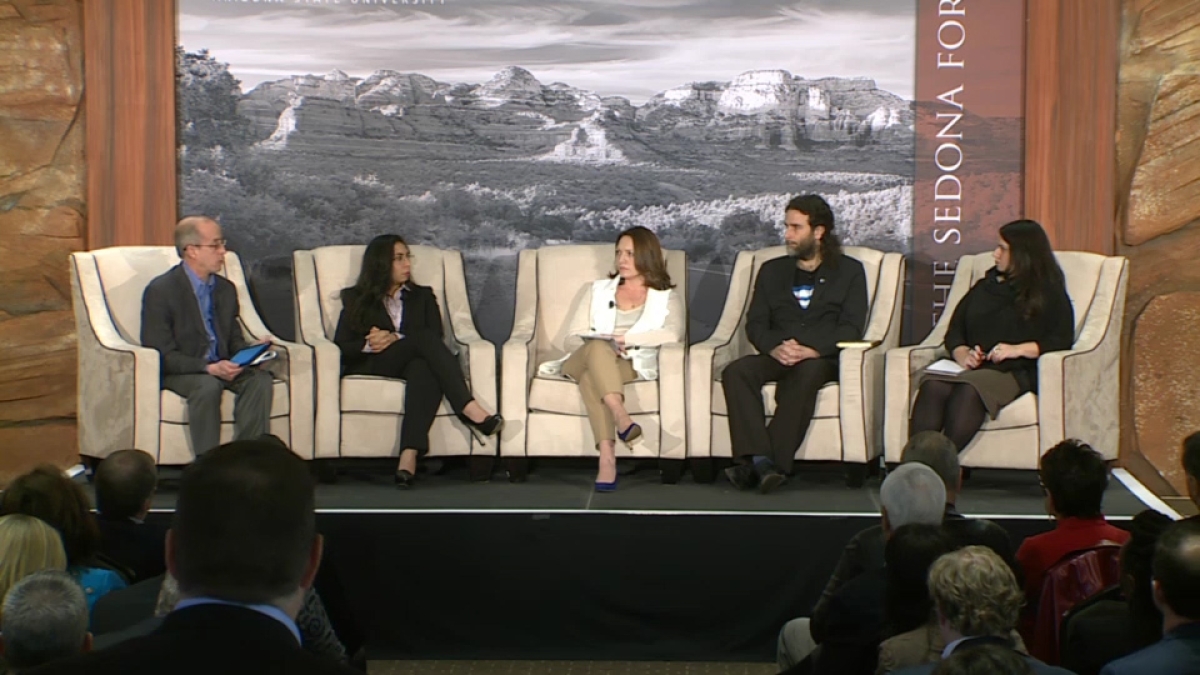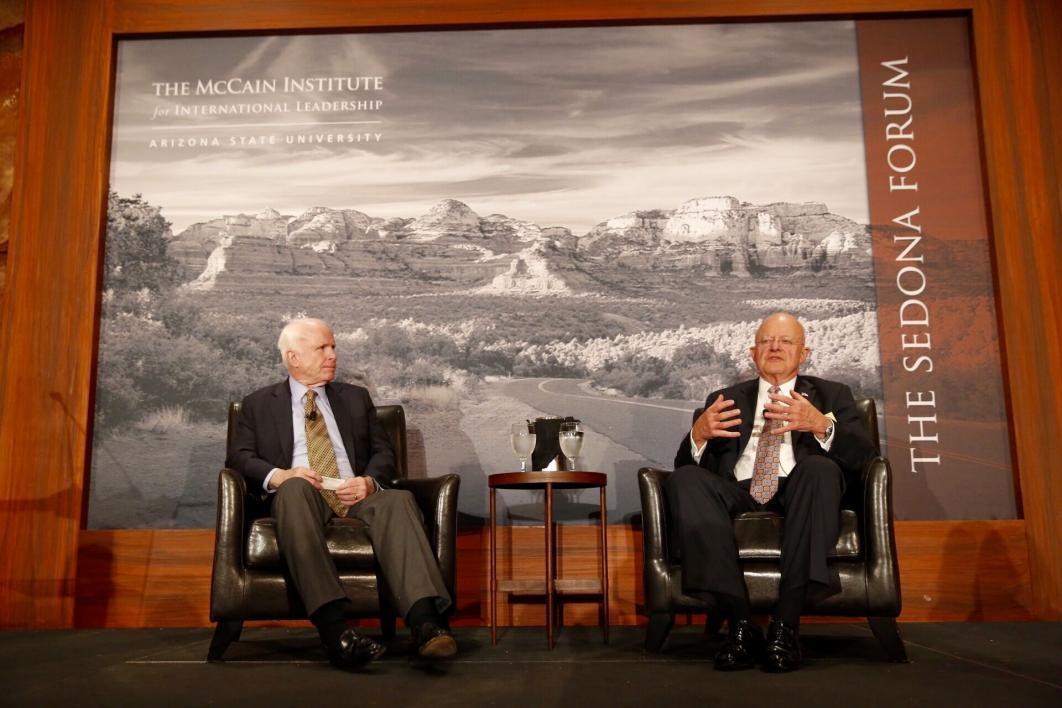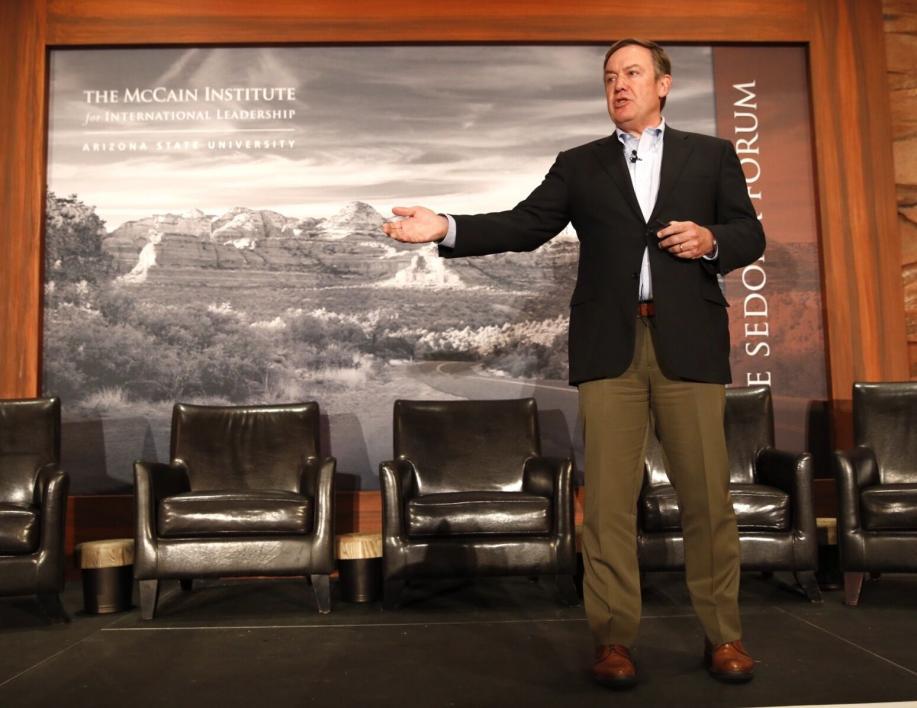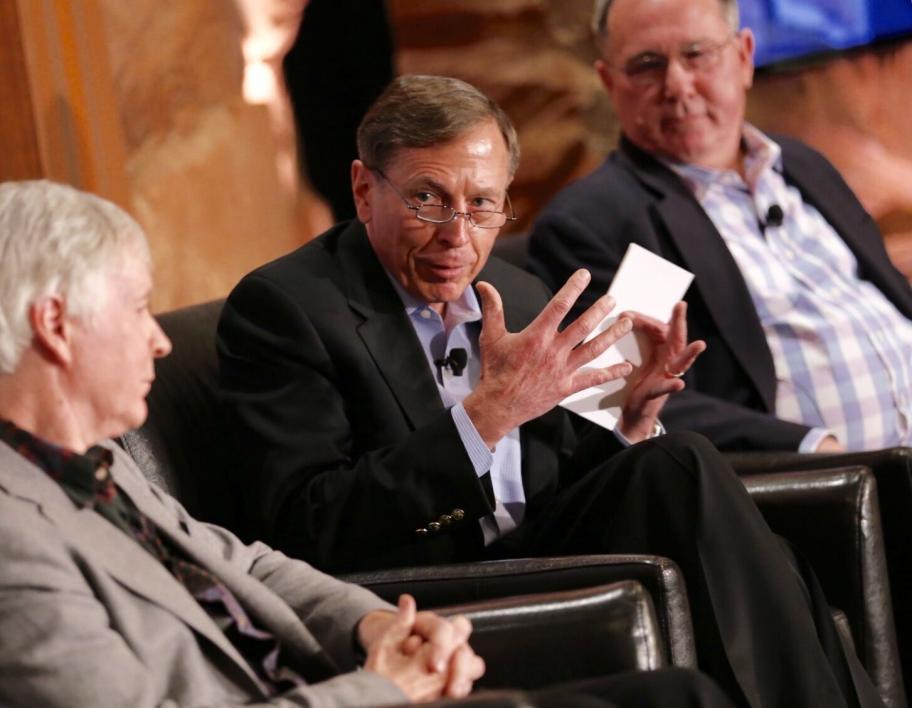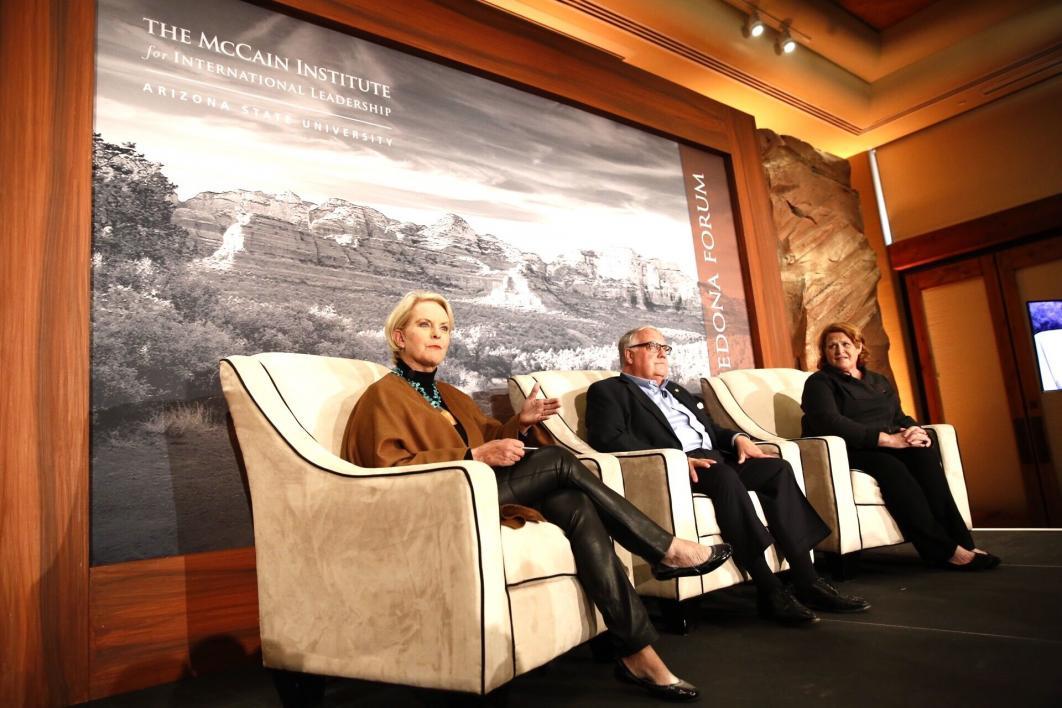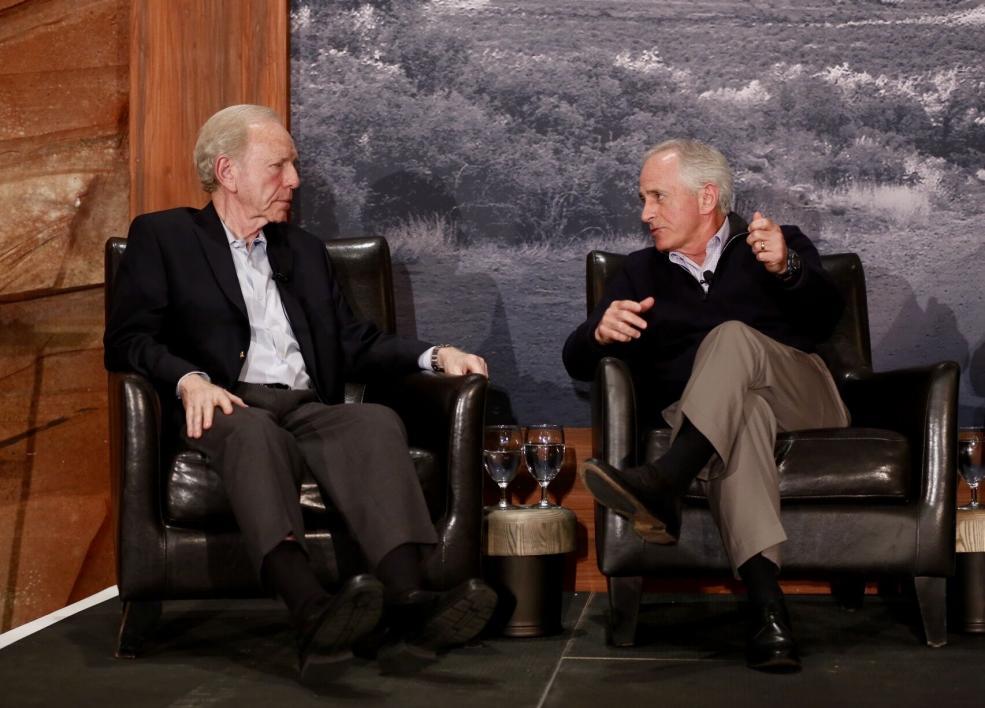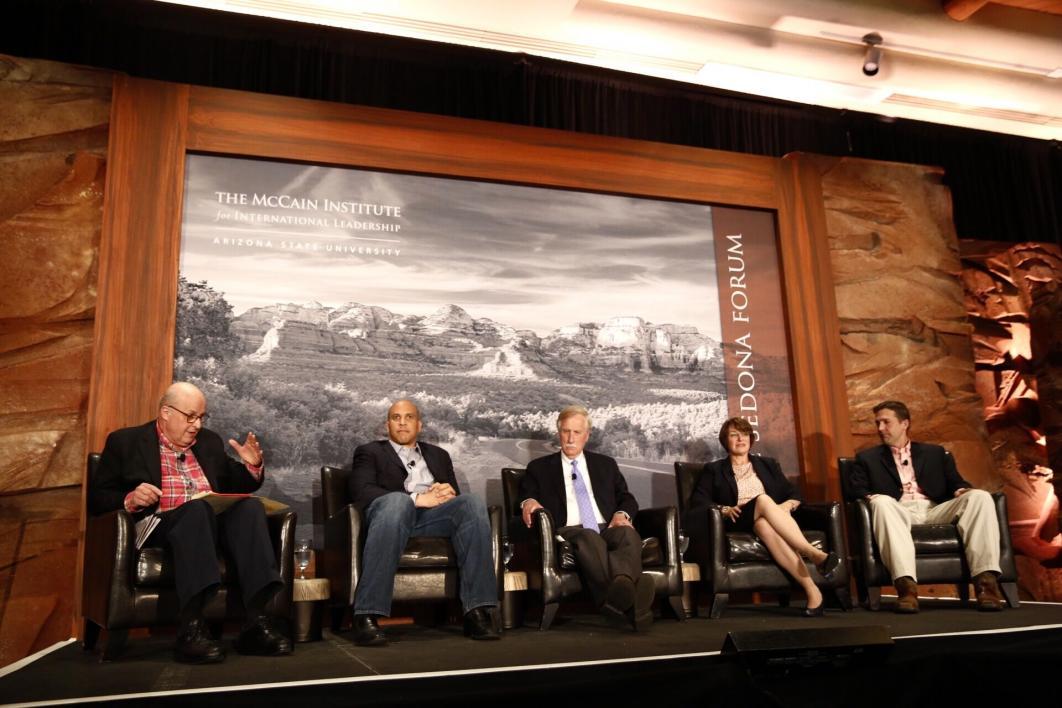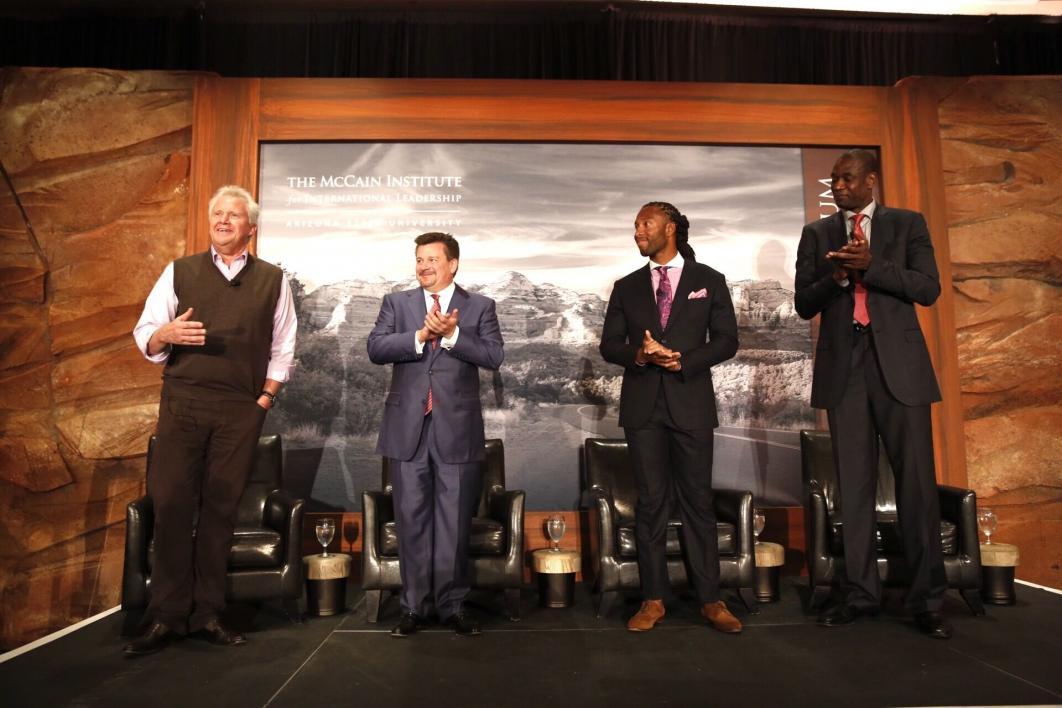Top government officials, business leaders, humanitarian workers and U.S. senators from both sides of the aisle were among the featured speakers at the fourth annual Sedona Forum held this past weekend by the McCain Institute for International Leadership at Arizona State University.
The forum brought together decision-makers, thought leaders and prominent figures from civil society to discuss such contemporary issues as cybersecurity, the threat to human rights and journalists around the globe, and the national security implications of the 2016 presidential campaign.
“The Sedona Forum demonstrates the convening power of the McCain Institute and ASU’s commitment to a solutions-based approach to research and the free exchange of ideas,” said ASU President Michael M. Crow, who spoke at this year’s meeting about the evolution of research universities and the vital role they can play in addressing many of society’s most pressing issues. “By bringing together such a diverse and accomplished group, the McCain Institute reinforces the importance of character-driven leadership and makes an important contribution to the spread of democratic values.”
Every year, the Sedona Forum brings to Arizona influential military, political, humanitarian and human-rights leaders for a weekend of discussions about critical global challenges. Highlights from the 2016 session included a keynote conversation between Sen. John McCain (R-Ariz.) and James R. Clapper, the director of National Intelligence; a panel on cybersecurity featuring Estonian President Toomas Hendrik Ilves and Admiral Michael S. Rogers, the director of the National Security Agency and head of U.S. Cyber Command; as well as a discussion about the national security implication of the current political campaign among U.S. Sens. Cory Booker (D-NJ), Angus King (I-ME), Amy Klobuchar (D-MN) and Ben Sasse (R-NE).
The McCain Institute website has a list of the topics discussed and the participants.
More Law, journalism and politics

Exhibit uses rare memorabilia to illustrate evolution of US presidential campaigns
After one of the most contentious elections in history, a new museum exhibit offers a historical perspective on the centuries-old American process.“We The People! Electing the American President” had…

TechTainment conference explores the crossroads of law, technology, entertainment
What protections do writers, actors, producers and others have from AI? Will changing laws around name, image and likeness (NIL) eliminate less lucrative college sports programs?And what does…

How to watch an election
Every election night, adrenaline pumps through newsrooms across the country as journalists take the pulse of democracy. We gathered three veteran reporters — each of them faculty at the Walter…
